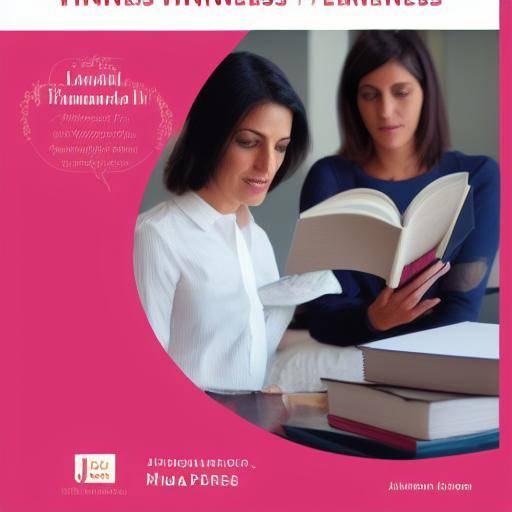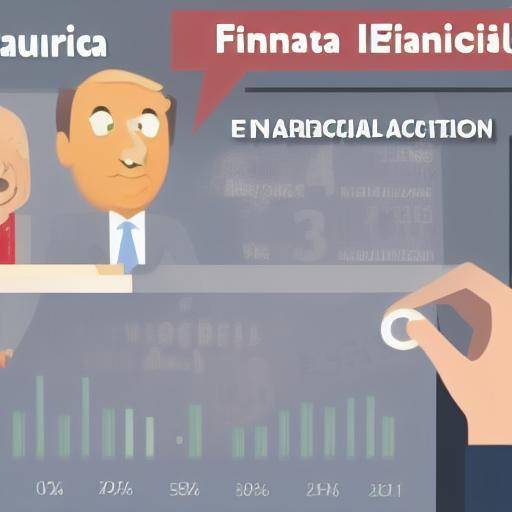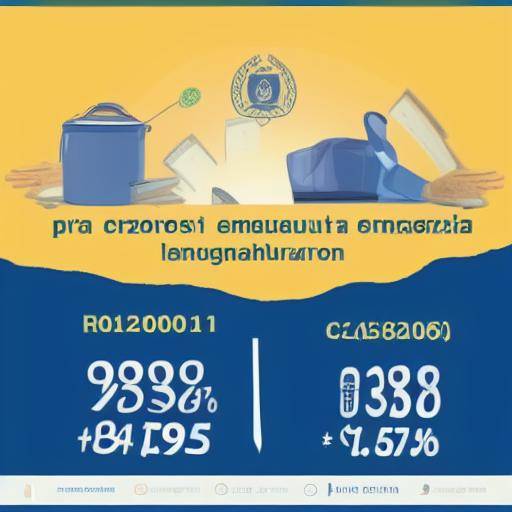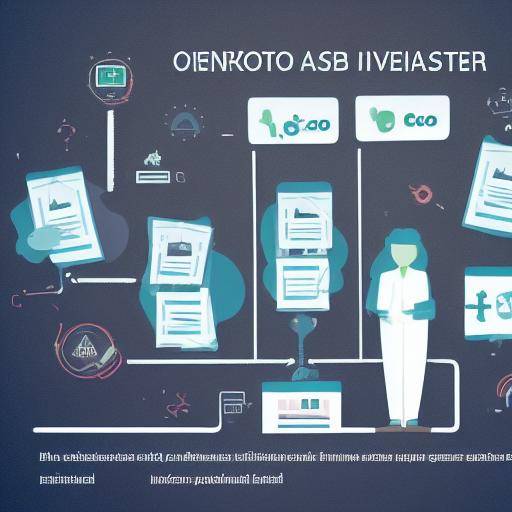
Introduction
In the current world, the use of credit cards has become an integral part of the daily financial activities of many people. However, responsible management of credit cards requires an adequate level of financial education. In this article, we will explore in detail the fundamental role of financial education in the effective use of credit cards. From the necessary knowledge of how credit cards work, the discipline to manage them responsibly and the making of informed decisions, each aspect is essential to avoid financial traps and maximize the benefits of credit cards. Readers will discover the importance of being well informed, being disciplined in financial practices and making conscious decisions when using credit cards.
History and Background
Credit cards have experienced significant developments over the years. Since its first appearance in the 1920s, when oil companies and some department stores offered credit cards to their customers to make purchases, to date, where credit cards are widely used worldwide for online payments, travel bookings and purchases in physical stores. Its impact on financial behaviour and the economy is undeniable.
Credit cards have facilitated people ' s lives by eliminating the need to carry large amounts of cash, providing a convenient way of acquiring goods and services, and providing a safe means for financial transactions. However, the lack of knowledge about its functioning and the absence of discipline in its use have led many people to fall into uncontrolled debts, adversely affecting their financial well-being.
Detailed Analysis
Benefits of Financial Education in Use of Credit Cards
Correct financial education provides people with the knowledge necessary to understand key credit card concepts such as credit history, interest, credit limits and interest rates. This understanding allows them to make more informed financial decisions and avoid falling into excessive debt traps. Furthermore, those with adequate financial education generally have a greater awareness of the importance of maintaining a good credit score, which can open long-term financial opportunities.
Challenges and Bad Practices in Using Credit Cards
Lack of discipline in managing credit cards can lead to significant financial problems. Excessive use of credit, non-compliance with minimum payments and the accumulation of high interest are just some of the challenges faced by those who lack discipline in their financial practices. Strong financial education can help people avoid these financial traps by fostering self-discipline in managing their personal finances.
Decision-making
The informed financial decisions play a crucial role in the effective use of credit cards. Well-informed card holders carefully evaluate available options, consider terms and conditions, compare interest rates and analyze benefits before selecting a credit card that suits their financial needs and capabilities. This informed approach allows them to make financial decisions that are in line with their long-term goals and helps them avoid committing to unsustainable financial obligations.
Comprehensive review
The use of credit cards is a common practice in the modern world, and financial education plays a crucial role in its effective management. By providing people with the knowledge necessary to understand the financial aspects of credit cards, fostering discipline in their use and promoting informed decision-making, financial education helps ensure that credit cards are used as a beneficial financial tool rather than becoming a financial burden.
Comparative analysis
Knowledge vs. Discipline
While financial knowledge provides the basis for understanding the concepts and mechanisms behind credit cards, discipline is the key to implementing that knowledge in everyday life. Without discipline, even people with broad financial knowledge may fall into bad practices, resulting in unintended debts and adverse effects on their credit score. Therefore, the combination of knowledge and discipline is essential for effective management of credit cards.
Discipline vs. Decisions
Discipline in the use of credit cards entails the ability to resist the temptation of unnecessary expenses, pay outstanding balances on time and maintain a healthy financial balance. On the other hand, informed decision-making involves choosing appropriate credit cards, managing credit limits responsibly and adjusting the use of credit cards according to current financial needs. Discipline can be considered as the daily implementation of informed decisions, ensuring that financial practices are sustainable in the long term.
Practical Tips and Accessible Tips
Effective management of credit cards requires a combination of knowledge, discipline and informed decision-making. Here are some practical tips to make the most of the use of credit cards:
- Know the terms and conditions of your credit card, including interest, late charges and credit limits.
- Establish a monthly budget and attach to it to avoid overexpenditures that may result in debt.
- Always pay more than the minimum payment required to minimize accumulated interests.
- Check your account statements regularly to identify and address immediately any unauthorized activity.
- Be selective when choosing new credit cards, prioritizing those with low interest rates and rewards that align with their spending patterns.
Industry Perspectives and Expert Reviews
Financial experts often highlight the importance of continuing financial education and informed decision-making in the use of credit cards. Following a disciplined approach to managing credit cards and making conscious decisions based on individual financial needs are aspects that experts emphasize as fundamental to avoiding financial traps and maximizing the benefits of credit cards.
Case Studies and Real Life Applications
The impact of financial education can be seen in numerous case studies where well-informed individuals, who maintain high levels of discipline and make informed decisions when using their credit cards, have managed to maintain sound financial health and maximize the benefits of credit cards. These examples of successful implementation highlight the importance of widespread financial education for consumers.
Future Trends and Predictions
As we move towards an increasingly digitalized world, trends point towards greater integration of financial education in personal finance management, including the use of credit cards. The expansion of digital tools, such as mobile applications and online educational platforms, is generating greater awareness and access to financial education, which will inevitably have a positive impact on informed decision-making and the financial discipline of consumers.
Conclusions and FAQs
Conclusions
In short, the role of financial education in the use of credit cards is critical to ensuring that people can use these financial tools effectively and responsibly. The combination of knowledge, discipline and informed decision-making is essential to avoid financial traps and maximize the benefits of credit cards.
Frequently asked questions
1. Why is it important to know about the functioning of credit cards?
Knowledge about the operation of credit cards is crucial to understanding associated costs, terms and conditions, and how it impacts on your credit history. This allows you to make informed financial decisions and avoid overexpenditures.
2. How can I develop discipline in the use of credit cards?
Establishing a monthly budget, paying more than the required minimum payment and regularly reviewing the account statements are key practices to encourage discipline in the use of credit cards.
3. What aspects should I consider when making decisions about new credit cards?
When choosing new credit cards, it is essential to consider interest rates, benefits and rewards, late fees and other terms and conditions to select the option that best aligns with your financial needs.
4. How can I improve my credit score using credit cards?
Responsible use of credit cards, such as timely payments and low balances, can contribute positively to improving your credit score over time.
5. What additional resources can I use to improve my financial education on credit cards?
In addition to the information available online, many financial institutions offer seminars and educational materials on the responsible use of credit cards, which can be valuable resources to improve their financial education.
6. What are the common financial traps I should avoid when using credit cards?
Some common financial traps include accruing high balances, making minimum payments only, and not carefully reviewing charges and commissions associated with credit cards.
In conclusion, knowledge, discipline and informed decision-making is essential for the effective use of credit cards. By fostering financial education in these areas, card holders can avoid financial traps and maximize the benefits of these financial tools.






















































